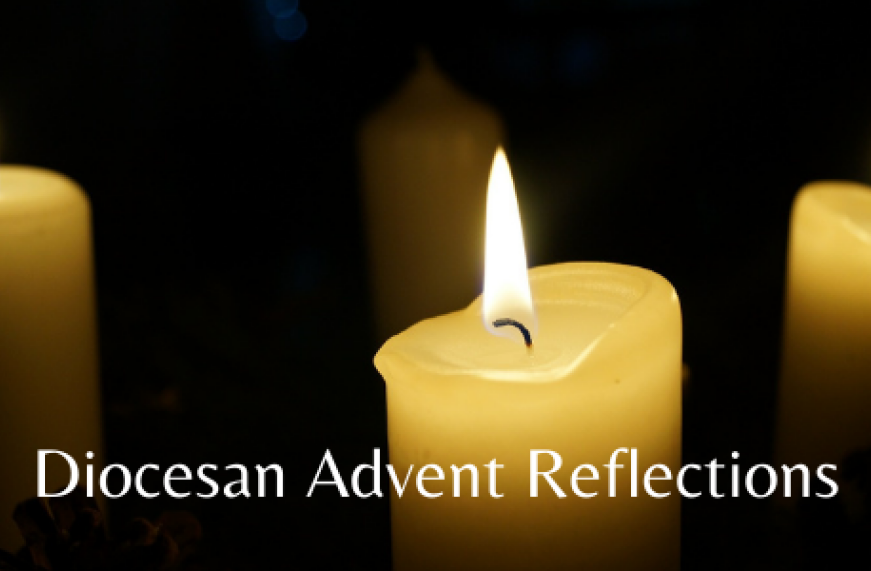Daily Advent Reflection: December 13

Third Sunday of Advent
Psalms 63:1-8(9-11), 98 · 103
Isa. 13:6-13
Heb. 12:18-29
John 3:22-30
We move ever closer to the Glorious Impossible, the Incarnation, the interruption of time and space, by God, who enters our world as one of us, fully human, Jesus. In the gospel of John, John who is the baptizer, but who does not actually baptize Jesus, points the way. One of the things that John the gospel writer is interested in is John the baptizer’s witness, or testimony, as well as your testimony, your witness to this inconceivable incarnation, this glorious impossible. John the Baptist is the witness to Jesus, Messiah. John has been sent ahead of Jesus and testifies to Jesus. We hear John’s story so that we may believe, so that we may also be a witness to this relationship of God and God’s incarnation, God in the flesh. John testifies to the light that shines in the darkness, the light that is the creative activity of Jesus. This is the light that is new creation, new birth. The light that exposes and reveals God in our midst.
The glorious impossible is God, creator of all that is seen and unseen, in the flesh, dwelling in this relationship with us, you, me, all of creation. In John’s gospel, believing means relationship. John’s gospel was written so that you might believe, or come to believe, or continue to believe, that you say yes to the relationship that is offered, and that you witness to God among us, Jesus. Being the witness is not to be an uninvolved spectator watching from afar, but to be full in the relationship that is offered by the God who dwells in creation.
This is the joy of incarnation, and this is the fear of incarnation. To be known so completely, to dwell so thoroughly in Jesus, to have our hearts claimed by God, is to be changed, transformed, made new. As John the baptizer bore witness, John the gospel writer asks each of us to testify, to bear witness to God’s transforming love.
To love, as God first loved us, is our witness. To love, as God so loves the world that God breaks into time and space to accompany us on this journey of life and love, wholeness and healing, forgiveness and reconciliation, is our witness. To love, as Jesus on the cross loves us, is our witness.
Immediately in front of this story of John the Baptist in John’s gospel is the story about Nicodemus, who came to Jesus in the dark of night. The darkness points us to Nicodemus’s inability to hear Jesus witness of God’s incarnation. For God so loves the world, we hear, that God breaks into the darkness with the light who is Jesus. After this story of John the Baptist, is the Samaritan woman at the well, who goes into the city and says to the people, Come, see a man who told me the truth about myself, who knows me and yet loves me. At the end of John’s gospel, Mary Magdalene meets the Risen Christ and says, “I have seen the Lord.” This is the articulation of witness. How will you witness to this glorious impossible this Christmas? How will you witness to this inconceivable incarnation this Christmas? How will you witness to this Love this Christmas? In this Covidtide, this time of disconnection, unrest, mistrust, how will you witness to the Love that wins?
The Rev. Kathy Monson Lutes
Trinity Episcopal Church, Janesville
